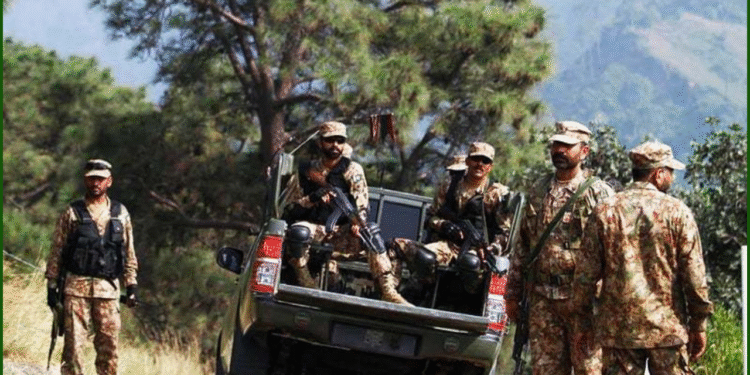In a significant development, Pakistan and India have agreed to a ceasefire, effective immediately, following a period of heightened tensions. According to senior military sources, the truce was initiated through indirect channels, with intermediaries facilitating communication between the two nations. The announcement came on May 10, 2025, after a call from Pakistan’s Director General of Military Operations (DGMO) to their Indian counterpart at 15:35 IST, agreeing to halt all military actions across land, air, and sea by 17:00 IST.
Speaking to journalists at the Presidency during a ceremony where Army Chief General Asim Munir was honored with the ‘Field Marshal Baton,’ military sources described the ceasefire as the culmination of a strategic and spiritual triumph. “With divine assistance, we achieved a historic victory,” the sources stated, drawing parallels to the Battle of Badr, where a small force of 313 fighters, guided by divine will, triumphed against overwhelming odds. “In the recent conflict, our forces stood resolute, supported by an unseen strength, delivering a response that left the adversary without recourse.”
The military leadership emphasized the unprecedented unity among Pakistan’s civil, political, and military institutions, describing it as a cornerstone of the nation’s success. “This harmony is a source of immense pride and has fortified our resolve,” they noted. The operation, codenamed Bunyanum Marsoos—meaning “a wall of molten lead”—was so named to reflect the impenetrable defense mounted by Pakistani forces, likened to an unyielding barrier against aggression.
When pressed on the reasons behind India’s decision to pursue a ceasefire, the sources responded with restraint: “We do not seek to humiliate our adversaries.” They highlighted that Pakistan’s actions were decisive, with the final strikes targeting Indian airbases, compelling India to seek de-escalation through intermediaries.
Addressing ongoing threats, particularly in Balochistan, where proxies have targeted civilians, the sources were unequivocal: “Those responsible are being dealt with decisively. Missiles are striking their targets, and no one who threatens our people will be spared.” This underscores Pakistan’s commitment to neutralizing threats, both external and internal, while maintaining its stance against terrorism, a position echoed by India’s Ministry of External Affairs, which noted that no preconditions were attached to the ceasefire and that India’s policy on terrorism remains unchanged.
The ceasefire has sparked cautious optimism, with Pakistan’s Deputy Prime Minister and Foreign Minister Ishaq Dar confirming the agreement on X, signaling a mutual intent to de-escalate. Analysts suggest that the truce, mediated possibly by international actors, reflects a pragmatic step to stabilize the region, though underlying tensions, including issues like the Indus Water Treaty, remain unresolved.
As Pakistan celebrates this milestone, military sources credit the nation’s success to a blend of strategic prowess, unified leadership, and spiritual resolve, framing the ceasefire as a testament to the country’s resilience and determination.

















































